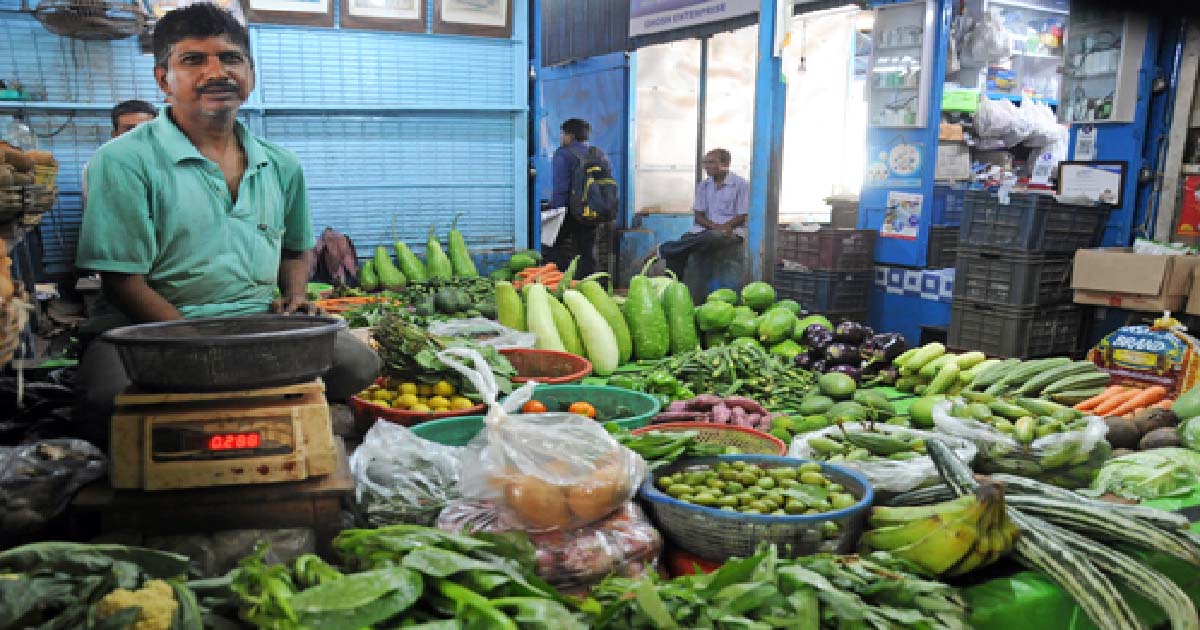Business
Oil majors gambling on emissions mitigation technologies: Carbon Tracker

Oil and gas companies are putting investors at risk because their plans to reduce emissions rely on technologies that are expensive and unproven at scale, finds a report from the financial think tank Carbon Tracker released on Thursday.
All but two of the 15 largest publicly traded oil and gas companies have updated their climate targets since May 2021, but the report warns that most are failing to commit to absolute cuts in emissions and it questions the credibility of company plans which seek to make room for new production.
Eni is one of only four companies to accept absolute cuts in emissions from the production and use of its products and has the strongest climate policy: it pledged a 35 per cent cut by 2030, up from its previous 25 per cent target.
All North American companies lag behind Europeans and ExxonMobil has the weakest policy: it adopted a net zero target last year but has not pledged specific cuts and excludes 95 per cent of lifecycle emissions from the products it sells.
No new investment in fossil fuel production is needed if the world is to meet the 1.5 degrees Celsius Paris climate target and avoid the worst impacts of climate change, according to the International Energy Agency (IEA).
Demand is set to fall over time as a result of governments’ climate policies, the rapid growth of clean technologies, and the drive for energy independence following Russia’s invasion of Ukraine.
Investors concerned about climate change and the risk of stranded assets are putting increasing pressure on oil and gas companies to align their plans with Paris.
“Absolute Impact 2022: Why Oil and Gas Companies Need Credible Plans to Meet Climate Targets” highlights the three approaches that companies are using to cut emissions while justifying continued investment in production: planning to roll out a wide range of emissions mitigation technologies (EMTs); selling assets; and buying offsets.
Mike Coffin, Carbon Tracker Head of Oil, Gas and Mining and report author, said: “Financial institutions must scrutinise companies’ emissions targets and whether their plans to achieve them are practical and credible in order to assess alignment with global climate goals.
“This is particularly so for companies which seek to ‘create space’ for further fossil investment.
“The best way for companies to reduce both their climate impact and transition risk exposure for investors is to allow their existing production to decline without investing in new assets.”
All but one of the 15 companies have announced plans to use EMTs: Eni plans to build plants in the North West of Britain and Ravenna, Italy, which will each capture and store 10 million tonnes (10Mt) of CO2 a year by 2030, but these will be from industrial processes, and not reduce emissions from its own products.
ConocoPhillips plans to capture CO2 and reinject it into reservoirs to extract more oil.
Although this may reduce the emissions intensity of its operations, it will likely lead to more oil being produced and burned.
Occidental is spending an estimated $1 billion to build the first large-scale plant in the US to capture carbon directly from the air. It aims to sequester 1Mt a year — 100 times the current global capacity from all such projects, but just 0.4 per cent of the total emissions from the assets it operates in 2021.
Total lists a 13,500 sq km forest in Peru among its offsetting projects, claiming it will help “prevent” more than 15Mt of CO2 over 10 years, but it is not planting new trees.
Repsol plans to offset 16Mt by planting 700 sq km of forest at Motor Verde, Spain.
Maeve O’Connor, Carbon Tracker Analyst and report author, said: “Oil and gas companies are gambling on emissions mitigation technologies that pose a huge risk to both investors and the climate. Most of these technologies are still at an early stage of development, with few large projects working at anything like the scale required by company goals, while solutions that involve tree planting require huge areas of land.
“It remains to be seen whether these technologies will be technically feasible or economically viable given the huge costs involved.”
Business
Indian stock market ends in bullish tone over hopes of renewed FII inflows

Mumbai, Dec 13: Indian equity benchmarks made marginal losses during the week amid sustained FII outflows and uncertainty surrounding the US-India trade negotiations.
However, the market ended the week in a bullish tone with Nifty surging 0.57 per cent on the last trading day after the US Federal Reserve announced a 25-bps rate cut.
Benchmark indices Nifty and Sensex dipped 0.36 and 0.17 per cent during the week to close at 26,046 and 85,267, respectively.
Indian equities opened the week on a subdued note, amid continued rupee depreciation and negative global cues due to rising Japanese bond yields.
The US Fed rate cut later in the week eased liquidity concerns and fuelled hopes of renewed FII inflows. With supportive central bank policies, steady domestic investments, and optimism over trade progress despite unclear timelines, benchmarks closed the week on a strong note.
India’s year-on-year inflation rate based on the Consumer Price Index (CPI) was estimated at 0.71 per cent for November this year which was marginally higher than the 0.25 per cent in October, according to figures released by the Ministry of Statistics.
Broader indices underperformed, with the Nifty Midcap100 and Smallcap100 down 0.51 per cent and 0.67 per cent, respectively, in a week.
Sectoral performance was mixed, with IT under pressure while PSU banks, real estate and consumer durables witnessed selective buying.
Hrishikesh Yedve, AVP Technical and Derivative Research, Asit C. Mehta Investment Interrmediates, said that Nifty’s weekly chart shows buying interest at lower levels.
Nifty has 26,200 and 26,325 as stiff resistance levels while 25,700 will act as support zone, he added.
Analysts said that markets will likely remain positive in near future but sensitive to rupee stability, FII flow trends, trade agreement clarity, and cues from major central banks abroad.
Amidst risks from currency fluctuations and global trade uncertainties, improving earnings visibility and liquidity support provide a constructive backdrop and downside protection, they added.
Business
Maharashtra on path to becoming GCC hub: CM Fadnavis

Nagpur, Dec 12: Chief Minister Devendra Fadnavis on Friday announced that a crucial milestone has been achieved in the journey to establish Maharashtra as a GCC (Global Capability Centre) Hub.
He said that the Brookfield company is set to build Asia’s largest Global Capability Centre (GCC) in Mumbai, spanning approximately 2 million square feet.
The Chief Minister said that this project is expected to generate a total of 45,000 jobs, including 15,000 direct and 30,000 indirect jobs.
He stated that due to the state’s talent pool, infrastructure, and industry-friendly environment, Maharashtra is becoming a preferred destination for Global Capability Centres.
“The new GCC policy will lead to large-scale skill-based job creation and economic growth,” he added.
He also mentioned that FedEx, a global leader in the logistics sector, is keen to invest in its GCC and other operations near the Mumbai-Navi Mumbai airport area, said the government release.
The Chief Minister informed that he requested Microsoft to consider Maharashtra for their investments, noting that their largest existing investment is already in the state.
He expressed confidence that Microsoft will make a major investment in the future and take the lead in making Maharashtra an Artificial Intelligence (AI) centre.
The Chief Minister said that Maharashtra’s model for crime control with the help of Artificial Intelligence is a guiding light for the entire country.
Chief Minister Fadnavis confirmed that Microsoft has assured priority to Maharashtra in their largest ever investment in India, amounting to $17 billion.
He further highlighted the ‘Marble’ platform developed by Maharashtra, which helps detect cyber and financial crimes in just 24 hours instead of 3-4 months.
He said that this has resulted in saving people’s money and has expedited the process of tracking criminals.
Business
India’s CPI inflation estimated at 0.71 pc for Nov, food inflation stays in negative zone

New Delhi, Dec 12: India’s year-on-year inflation rate, based on the Consumer Price Index (CPI), was estimated at 0.71 per cent for November this year which was marginally higher than the 0.25 per cent in October, according to figures released by the Ministry of Statistics on Friday.
Food inflation stayed in the negative zone during November at (-) 3.91 per cent as prices of food goods fell compared to the same month of the previous year. Food inflation has now stayed negative for the sixth month in a row, easing the burden on household budgets.
However, the increase in headline inflation during November 2025 is mainly attributed to an increase in the inflation of vegetables, eggs, meat and fish, spices, and fuels compared to October, according to an official statement.
The retail inflation had eased further in October, after having plummeted to an over 8-year low of 1.54 per cent in September, as prices of food items and goods across sectors fell during the month.
The declining trend in food prices continued in October as food inflation fell deeper in the negative zone at (-) 5.02 per cent from (-) 2.28 per cent in September.
However, the overall outlook for inflation remains benign.
The RBI’s monetary policy committee (MPC) last week slashed its forecast for India’s inflation rate for the financial year 2025-26 to 2 per cent from 2.6 per cent predicted in October due to the sharp decline in food prices and the GST rate cuts playing out.
RBI Governor Sanjay Malhotra announced a reduction in the repo rate by 25 basis points to 5.25 per cent from 5.5 per cent earlier, as inflation had come down and the monetary policy could focus on boosting growth.
Malhotra said that the surge in economic growth to 8.2 per cent in the second quarter of the current financial year and the sharp decline in inflation to 1.7 per cent had provided a rare “Goldilocks period” for the Indian economy.
“The MPC noted that headline inflation has eased significantly and is likely to be softer than the earlier projections, primarily on account of the exceptionally benign food prices. Reflecting these favourable conditions, the projections for average headline inflation in 2025-26 and Q1:2026-27 have been further revised downwards.”
Malhotra also pointed out that core inflation (which excludes food and fuel) remained largely contained in September-October, despite continued price pressures exerted by precious metals. Excluding gold, core inflation moderated to 2.6 per cent in October. Overall, the decline in inflation has become more generalised, he added.
The RBI Governor observed that food supply prospects have improved on the back of higher kharif production, healthy rabi sowing, adequate reservoir levels and conducive soil moisture. Barring some metals, international commodity prices are likely to moderate going forward.
-

 Crime3 years ago
Crime3 years agoClass 10 student jumps to death in Jaipur
-

 Maharashtra1 year ago
Maharashtra1 year agoMumbai Local Train Update: Central Railway’s New Timetable Comes Into Effect; Check Full List Of Revised Timings & Stations
-

 Maharashtra1 year ago
Maharashtra1 year agoMumbai To Go Toll-Free Tonight! Maharashtra Govt Announces Complete Toll Waiver For Light Motor Vehicles At All 5 Entry Points Of City
-

 Maharashtra1 year ago
Maharashtra1 year agoFalse photo of Imtiaz Jaleel’s rally, exposing the fooling conspiracy
-

 National News1 year ago
National News1 year agoMinistry of Railways rolls out Special Drive 4.0 with focus on digitisation, cleanliness, inclusiveness and grievance redressal
-

 Maharashtra1 year ago
Maharashtra1 year agoMaharashtra Elections 2024: Mumbai Metro & BEST Services Extended Till Midnight On Voting Day
-

 National News1 year ago
National News1 year agoJ&K: 4 Jawans Killed, 28 Injured After Bus Carrying BSF Personnel For Poll Duty Falls Into Gorge In Budgam; Terrifying Visuals Surface
-

 Crime1 year ago
Crime1 year agoBaba Siddique Murder: Mumbai Police Unable To Get Lawrence Bishnoi Custody Due To Home Ministry Order, Says Report












